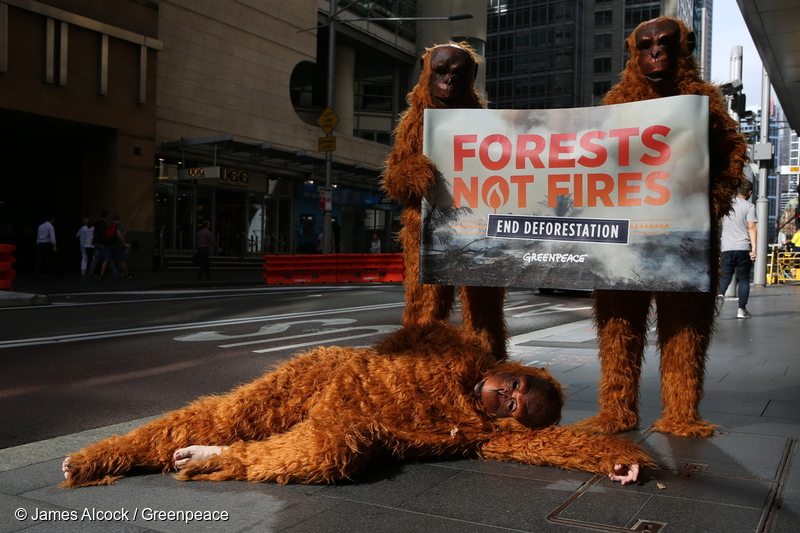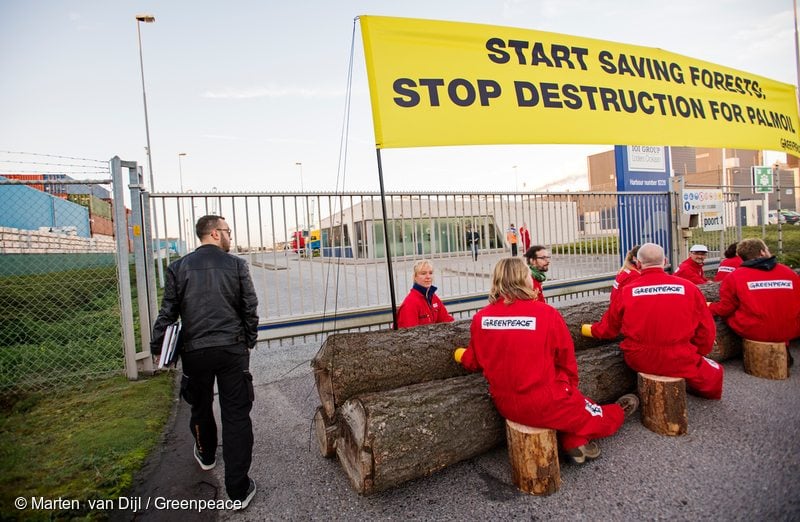What if we told you purchasing a pack of your favourite cookies could be directly contributing to deforestation? You might be surprised to find out just how many of your daily products contain palm oil – the most widely consumed vegetable oil on the planet.

What if we told you purchasing a pack of your favourite cookies could be directly contributing to deforestation? You might be surprised to find out just how many of your daily products contain palm oil – the most widely consumed vegetable oil on the planet.
Many corporations buy their palm oil from companies that retrieve it with complete disregard for the environment. The World Wildlife Fund found that every hour, a section of the rainforest equivalent in size to 300 football fields is cut down to make room for palm oil production. This level of deforestation is having severe impacts on our environment, our wildlife and native people.
Palm oil is found in 40 to 50 percent of all household products in Australia. Everything from your lipstick to your instant noodles could contain the product, and there’s a good reason why. It is objectively the most efficient source of vegetable oil in the world. The problem lies in how it’s produced.
Why is the extraction of palm oil so harmful?
Deforestation is the most direct and obvious impact. Indonesia’s palm oil industry has weak and poorly enforced regulations and when mass amounts of our forests are cut down for palm oil plantations, we lose irreplaceable and biodiverse forests in a matter of hours.
Historically, palm oil plantations have been linked to serious threats to endangered species due to this deforestation specifically. Just last year, the International Union for Conservation of Nature declared that the beautiful and intelligent Bornean Orangutan was now ‘critically endangered’, with habitat loss for plantations a leading cause. Not to mention the fact that deforestation for palm oil plantations has created the conditions for intense fires, which are estimated to have caused 100,000 premature deaths in late 2015.
On top of the threat palm oil presents to invaluable species, rainforest destruction contributes directly to climate change. Burning timber and forest undergrowth releases massive amounts of smoke and increases the amount of greenhouse gas emissions in our atmosphere.Palm oil developments also create clear pathways for animal poachers and wildlife smugglers. When the plantation owners create roads for their workers and equipment, it gives direct access to poachers looking for endangered animals to kill, sell or trade. Previously, poachers would be forced to trek through difficult forest areas, now they can be led straight to our precious wildlife – causing more direct harm to these animals.

Greenpeace activists close off access for all imports and exports from palm oil trader IOI in the harbour of Rotterdam, palm oil’s gateway into Europe.
How can you take a stand?
So, where do we go from here? You don’t need to avoid palm oil for the rest of your life, you just need to know which companies are only buying responsibly-produced palm oil. One of the best ways to help end these harmful practices is by letting your wallet talk.
Keep an eye out for the Responsibly Sourced Palm Oil (RSPO) label on your products. If you can’t find these stickers look for the Green Palm label which indicates a product in support of the transition to certified palm oil. Proceeds from Green Palm certificates help growers fund the transition to sustainable palm oil.
With your help, we can begin to end the devastating effects of deforestation, and we can’t really afford to wait. Together let’s put an end to destructive palm oil practices.



